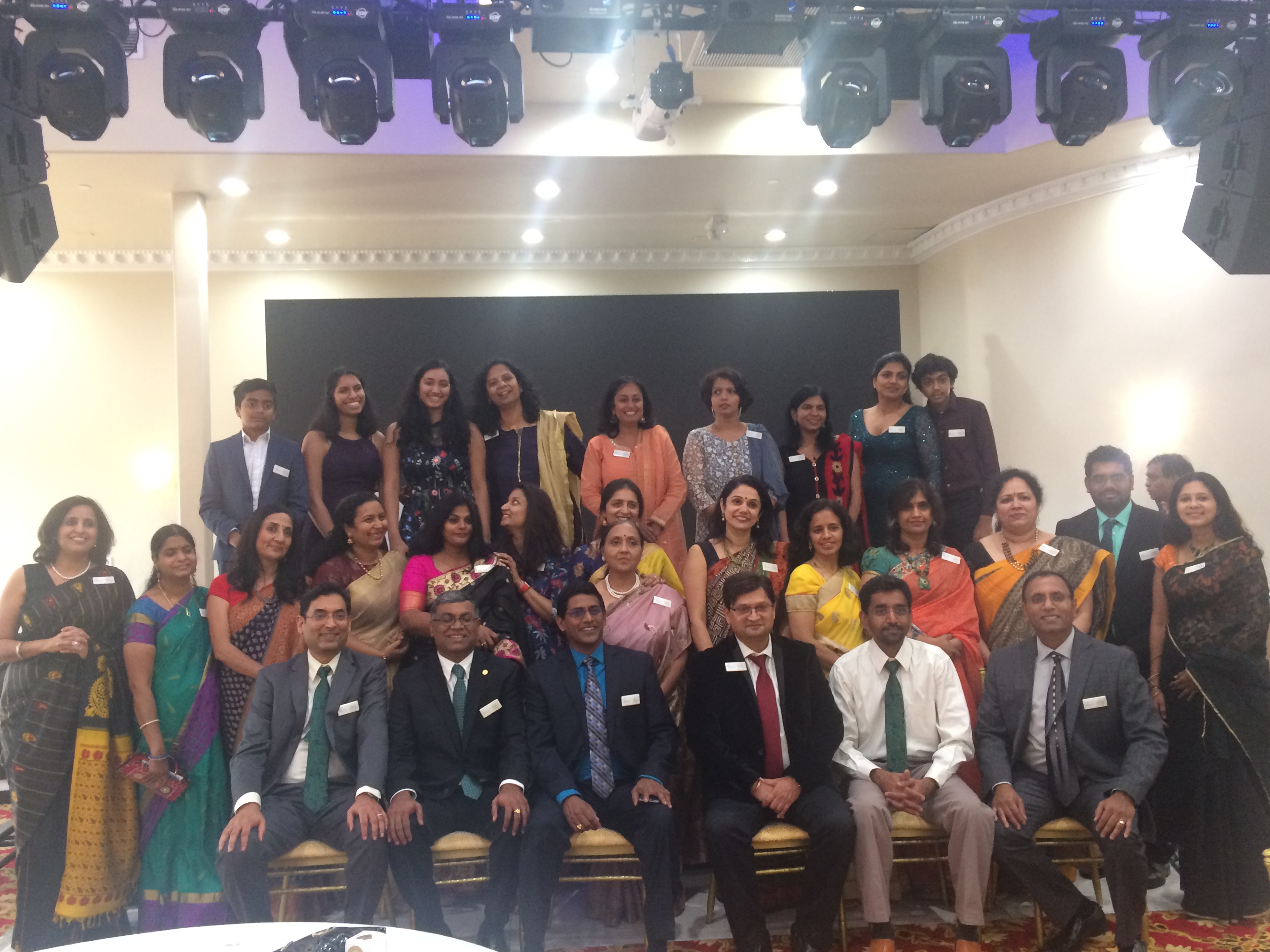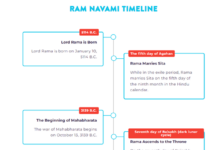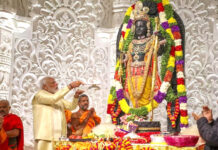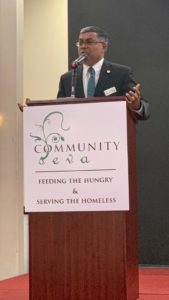
LAKSHMI IYER
India Post News Service
MILPITAS, California: Community Seva, a local nonprofit founded by Indian expat, Nathan Ganeshan, held its annual fundraiser event, a luncheon called “A Meal to Heal Tree of Life Luncheon”, at Aria’s Dining and Banquet Hall in Milpitas, California on November 17.
People living on the streets in unhygienic conditions are not expected in one of the world’s richest, most developed nations. However, a range of unfortunate circumstances contribute to people losing the roofs over their heads.
This is a particularly glaring issue in the San Francisco Bay Area, ironically one of America’s wealthiest regions and home to Silicon Valley.
Nathan Ganeshan started helping the homeless many years ago. On June 6, 2013, Community Seva was officially incorporated as a registered 501(c)(3) organization. From a small team, the organization has grown to more than 2000 volunteers.
These volunteers plan the menu, purchase groceries and regularly cook hot, nutritious, delicious meals at homeless shelters. They cook a special dinner for Thanksgiving, the holiday on which Americans typically get together with family for a sumptuous dinner and a gratitude ritual.
Apart from meals, Community Seva runs a mobile shower and laundry service and hands out backpacks with essential supplies to those living on the streets.
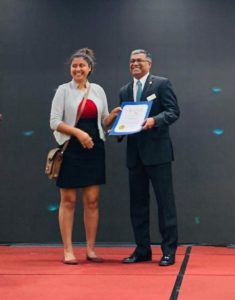
Members also clean up encampments and hand out winter essentials and personal hygiene supplies. The fundraising goal for this event was to raise $150,000 to increase all their services.
The luncheon brought together advocates for the homeless, local elected officials and general supporters for an afternoon of compassionate understanding and giving.
As people mingled with appetizers and cocktails, a saxophone player regaled the assembled guests with golden melodies from Hindi cinema.
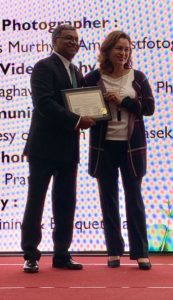
The keynote speaker was Pastor Scott Wagers, the founder and senior pastor of CHAM Deliverance Ministry. He has vast experience in the field of working with homeless people. His master’s thesis was on “The Structural Causes of Homelessness in America”. His church serves as a shelter to the homeless.
In his keynote speech, Wagers said that many of us are insulated from that reality and recounted the dire state of the homeless.
“People are literally living in fourth world conditions… without safe habitation or sanitation,” he said.
“There are diseases that break out in homeless camps. The picture again, it is startling and that is why I stay out there on the front lines because to see it up close and personal, it grips you. And you have two choices: you can be afraid, you can walk away, you can try to build insulation between you and your brother and sister, or you can make a difference. And that’s what brother Nathan and Community Seva is about.”
He made an ardent call for compassion for the homeless, saying, “These are children of God. These are human beings. And they have lives and they have stories.”
He added that every bit of help makes a difference,
“They are in survival mode. When you are in survival mode, everything matters,” Wagers said
Moderator Yogi Chugh started off a panel discussion with Wagers, Ganeshan, Shaunn Carwright and Jerome Shaw.
He said that homelessness does not just affect a certain group of people and elaborated,: “It transcends race, it transcends age…44 per cent white Caucasians, 24 per cent multiracial, 19 per cent black, 8 per cent American Indian or Alaskan native.”
Carwright has been involved with helping the homeless since she was a teenager. She and her friends would put up performances to raise money and help the less fortunate.
Jerome Shaw has experienced homelessness on and off. Forced out of his residence when his apartment complex was bought around 2013, he stayed in a hotel, then couch-surfed for some time before finding another apartment in West San Jose where his son could go to school.
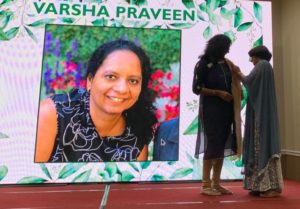
Unfortunately, in 2015, Shaw had a health breakdown and lost his job, his son and home. Owing to health issues, he could not work for a couple of years. He lived out of his car for a while, but lost that, too, when his vehicle was towed as he was unable to pay the registration fee.
He moved from homeless shelter to shelter and was able to get to a mental health program run by one of them. When he was “timed out” of the shelter, he had to leave.
Barriers to getting out of homelessness:
Pastor Wagers pointed out to the $63-billion housing budget cuts instituted by then President Ronald Reagan in the 1980s. He explained,: “What causes homelessness? It is houselessness.”
He referred to a Stanford epidemiologist who had studied homelessness. She said that while drug addiction and mental health issues were correlated with homelessness, they do not cause homelessness.
The pastor added: “There are countries in the world where there are no homeless people because housing is a right.”
He attributed the issue to bigger forces at play such as the economy and the cost of housing. Once on the streets, many are stuck because every single issue they have is exacerbated manifold.
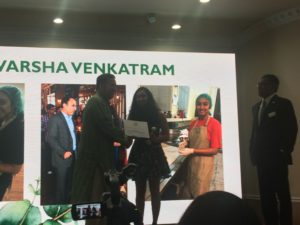
Carwright added this deeply heart-wrenching fact about drug addiction as a self-defense mechanism for women: “A lot of women end up having to do drugs once they get on the streets; they do drugs to stay up all night so you don’t end up falling prey to the predators. Majority of the women who have been on the streets have been raped at least once.”
Drug addiction and the trauma of being on the streets combined with their past trauma – some are victims of domestic violence – that made them end up homeless in the first place, make it very difficult to get back to a normal life.
Added to this is the inadequacy of public support systems for the vulnerable and abused.
Carwright commended the humanity that was evident in Community Seva’s work. Shaw added, “Everyone loves when Community Seva comes around because they actually serve good food.”
The call for donations had a very good response, with quite a few supporters chipping in with generous sums. Ganeshan said, “Every single dollar you donate will go towards the cause…You will get to see. That is the beauty of Community Seva because the cause is local and when you donate, you get to volunteer with us.”
Local leaders such as California State Assembly members, county supervisors, mayors and others graced the occasion and awarded certificates to the organization.
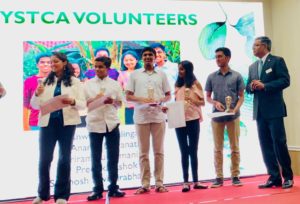
The core volunteers and executive team members of Community Seva were recognized and given a well deserved round of applause. Community Seva secretary and executive director Saras Venkatram referred to them as the “backbone of our organization” in her speech.
Boys and girls from Youth Service Through Cultural Acts (YSTCA) who raised about $15,000 at one of their performances for Community Seva, received the US President’s Service (Bronze) Medal.
On behalf of Community Seva, Venkatram thanked all the elected officials, advisory board members, sponsors and media for their support. Some supporters were awarded the Tree of Life awards.

